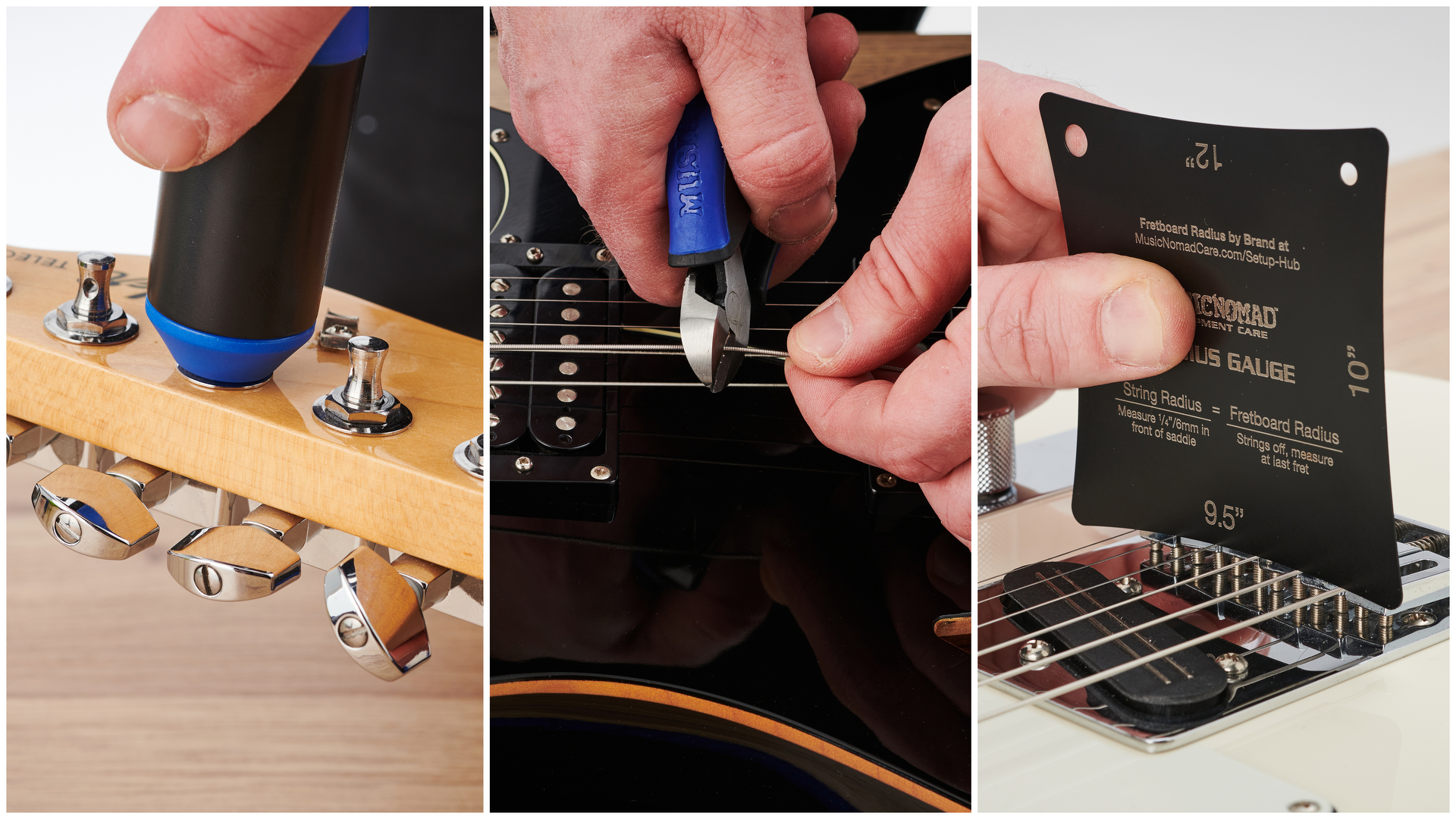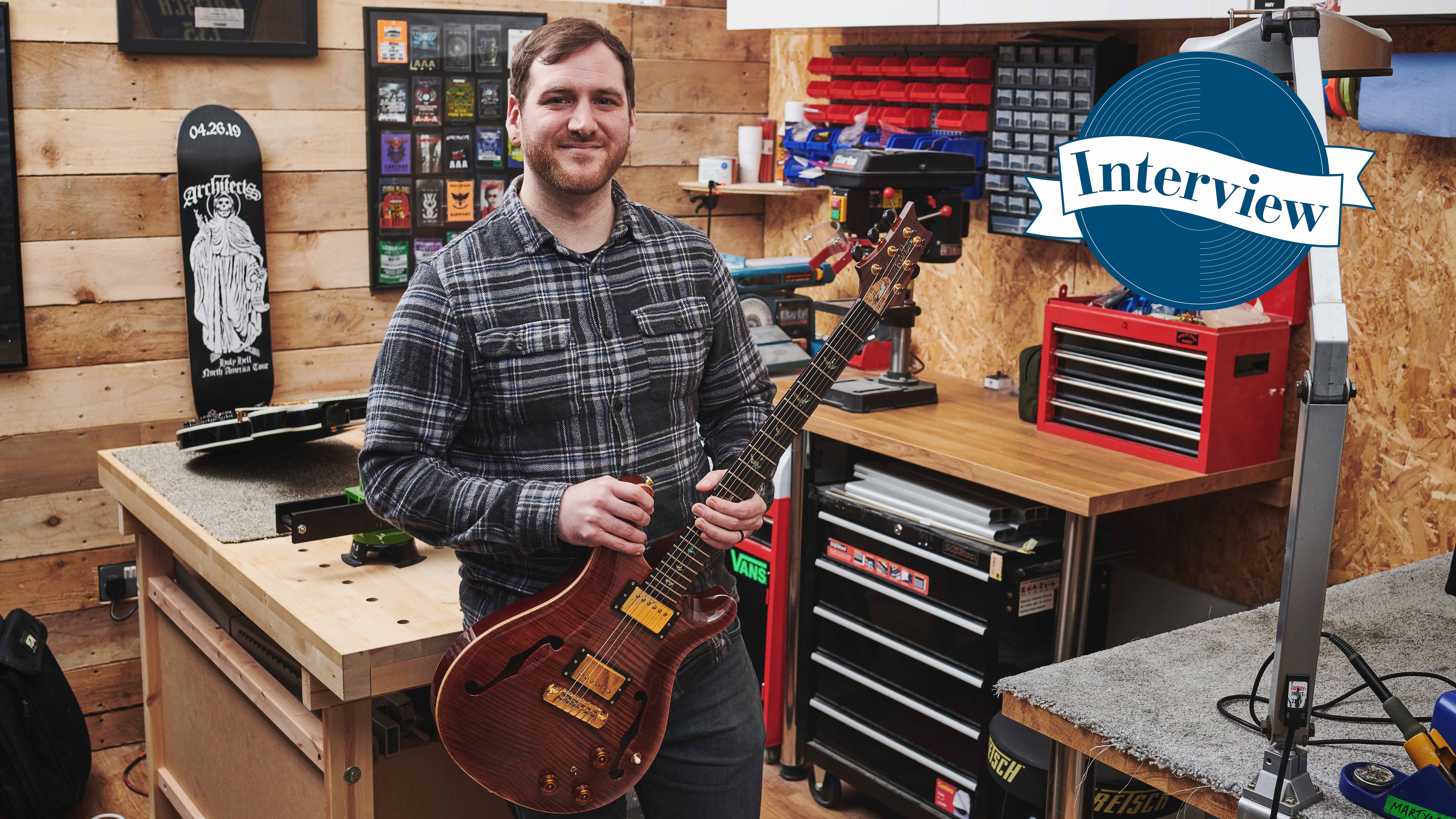
We've always found that guitar techs are the source of infinite wisdom and Martyn Evans is a case in point. He's spent the last 15 years doing that job on the road all over the world, working with the likes of Devin Townsend and Architects. He's worked as part of the latter band's team as they've moved up from Academy venues to arenas, working with guitarist Josh Middleton. But that's only part of his story.
Martyn found himself without work with bands during the pandemic and joined up with GuitarBitz, an excellent guitar shop in the historical city of Bath, to become their in-house tech. He's now got his own workshop there under the Flat 5 banner offering setups, repairs and mods to players. So we wanted to not just draw on his experience when it comes to looking after our guitars, but also his career. Martyn pursued playing as a musician full-time, and is a former member of Bleed From Within, but now proves you don't have to be in the band to play a crucial role touring and working with guitars.
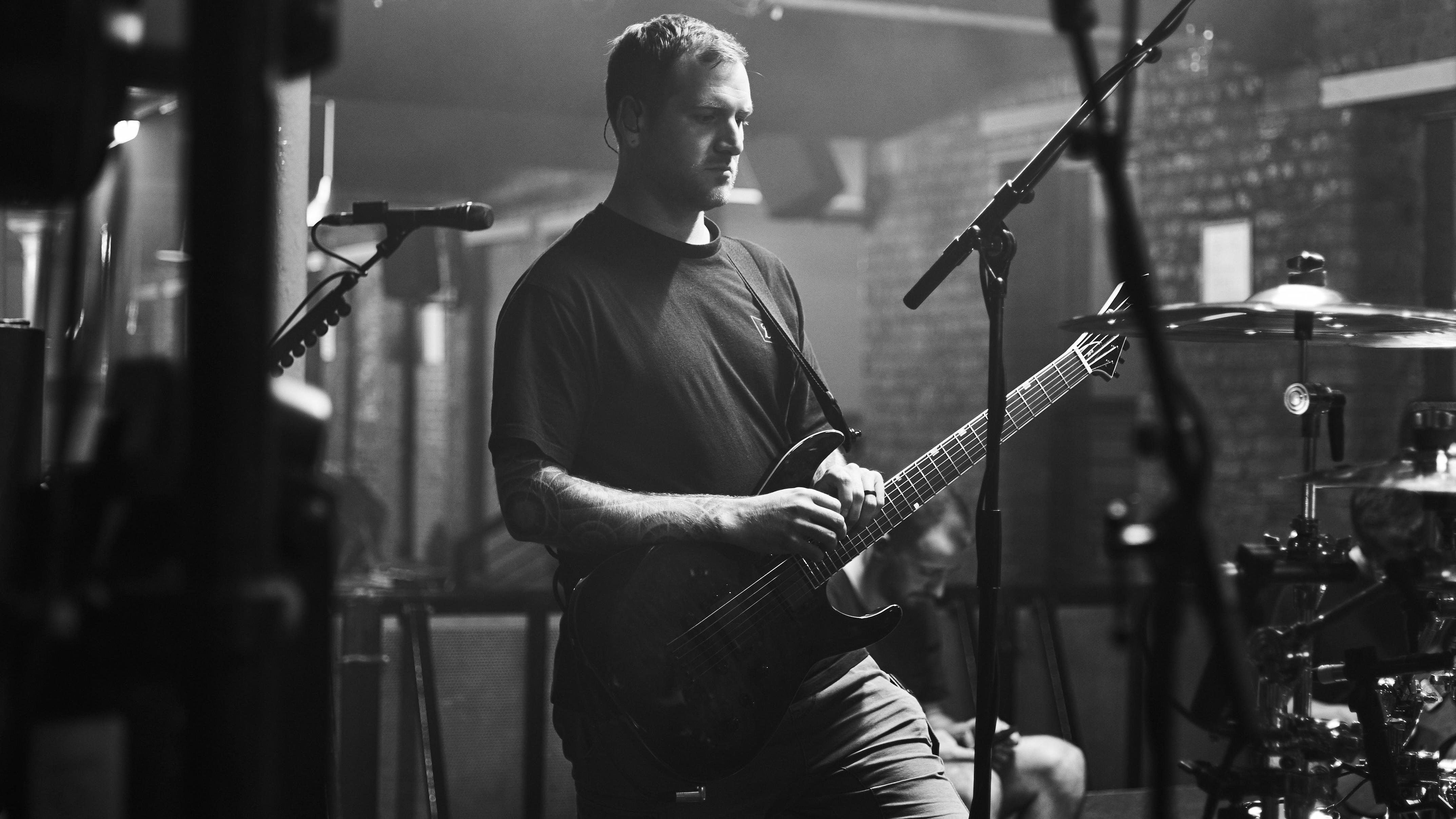
I still wanted to tour and be involved in the industry
How did you get into this kind of work?
"Technically, I've tinkered on guitar since I was a child. I've played guitar since I was seven, or eight. That's when I got my first guitar, and then got into tinkering, and learning the kind of the things you read about setups and whatnot. Then I was fortunate enough to meet a chap called Phil Norman.
"Phil did what I do now but at [former Bath music shop] Duck, Son & Pinker when I was a kid. After school and weekends, I would take my guitars in, and I would want EMGs changed and stupid things I'd see in a magazine. And fortunately, because I had no money because I was a child, my dad was good enough to fund my habits. And one day Phil said, 'You know, you can kind of you can learn this stuff yourself'. And I ended up going in quite a lot and hanging out with Phil in his workshop.
"As a guitar tech for gigs, that's obviously continued through my life. When I was playing in bands and meeting other bands, I would still look after my gear, but I would look after the gear of my my fellow bandmates. And then when I decided not to be, I guess, a touring musician anymore, I still wanted to tour and be involved in the industry. So I started kind of offering my services out to bands that way, and then it grew from there.

You're a very accomplished guitar player, so was there a point you made the decision not to pursue that further professionally?
Want all the hottest music and gear news, reviews, deals, features and more, direct to your inbox? Sign up here.
"Well thank you very much! It's wasn't a singular point. It was a whole chain of events that would eventually lead to it. It's a mental struggle trying to be a full-time musician. The biggest thing thing was, in my mid 20s I got married. I have known my wife since I was young. She's always been incredibly supportive of me being a musician. But I essentially lived out of her pockets for years.
"I loved being in bands, I loved playing music but at some point you try to grow your life alongside of that. And that makes it even harder for the mental struggles of dealing with the fact that you give up a lot of your life to do it. And really don't see much financial gain back. I'm not saying it's all about money but that becomes a massive factor eventually.
So I guess I'm very lucky. I look after some of these rock stars, and I am a part of their deal – you just don't see me
"I still loved touring, I still wanted to travel the world. Then speaking with my wife a lot about what I would do, because I didn't feel I could just walk away from it at all, it seemed like the most logical step. Because maybe it's some way that I could make a financial future and also be involved in the industry, as well as my realisation that as much as I absolutely love music, I'm a guitar nerd at heart that that's my favourite thing about music.
"So it was like, okay, I can still have a kind of career in guitar but maybe I'm just not the guy on stage. You definitely have to get to grips with your ego. When I was a kid, I was always a guy in a band. But not everyone makes it, it's incredibly hard to make it. So I guess I'm very lucky. I look after some of these rock stars, and I am a part of their deal – you just don't see me. I just wanted to be involved in it and have a life that hopefully I could look back on and not regret any of it.
"I've travelled the world multiple times, and I'm so grateful for it. Apart from playing the gig, I do every part of it and in some ways I do still play the gig. As the shows got bigger for bands I worked for, there's definitely more crucial stuff that has to happen. And a lot of this is the same pressure that was always there when I was playing in bands, but it's just in a different area."
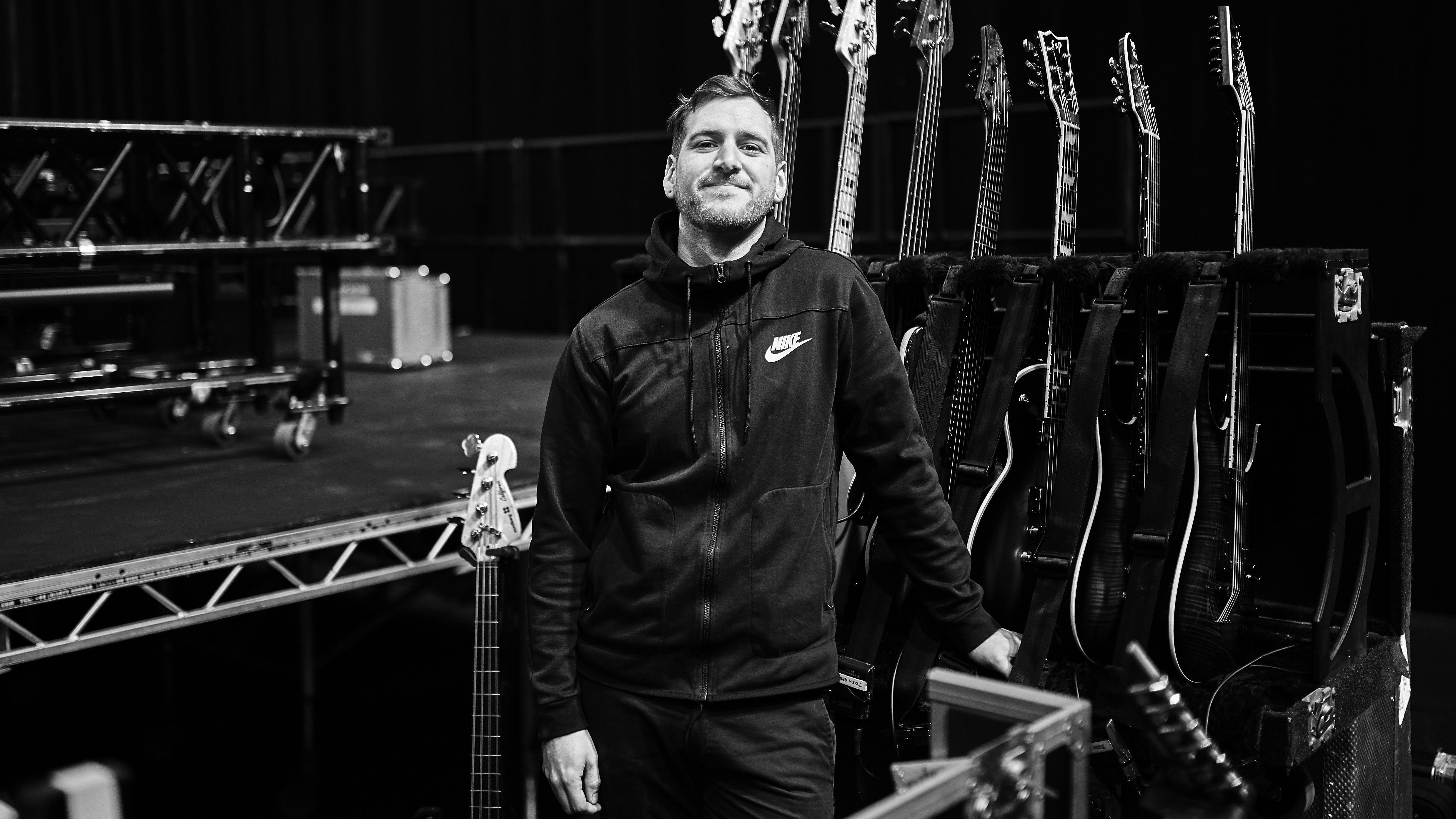
Another misconception is that I just tune guitars and that's all I'm there for
The first few years of being a guitar tech, I imagine you were earning only when you were on tour. Could you find work in between tours?
"So that's another big thing. I've been fortunate in that I've worked with so many different things throughout my life, on and off. I've helped run a tattoo shop, I've worked in Tescos and pubs.
"Most people do that. Most bands have full-time jobs. It's just the the mental strain of organising; 'I've got to go on tour, right, I need to get these dates off'. With most jobs out there, I have to say I found as long as you're you turn up, you're nice and you work hard, no one had a problem with me going away for like a month or something. If they could see that it's what you're trying to do – everyone gets one life.
"I can't say a bad word about any job that I've had. They have let me go and do it. And I've never been let go from a job because of going away. Instead I've decided to maybe change a job or move or when short time contracts ended.
"That's a big one – getting those shorter kind of contracts because they are really handy but you tend to get different jobs. So you have to be really on the ball with that between tours."
What do you think are the biggest misconceptions about the job of a touring guitar tech?
"That I sit and play guitar all day? Probably. And that there's not much to do. I mean, there are days, don't get me wrong, where if I've got a lot of stuff done and I'm organised. I have pretty chilled out days and I can play guitar. But most of the time, if I do get time off, I don't want to be in the venue and I don't play guitar. Another misconception is that I just tune guitars and that's all I'm there for, I guess. But there's so much more to it."
There's that saying; you're only as good as your last gig. And and that's true, but the biggest challenge for me was mentally not taking it so personally
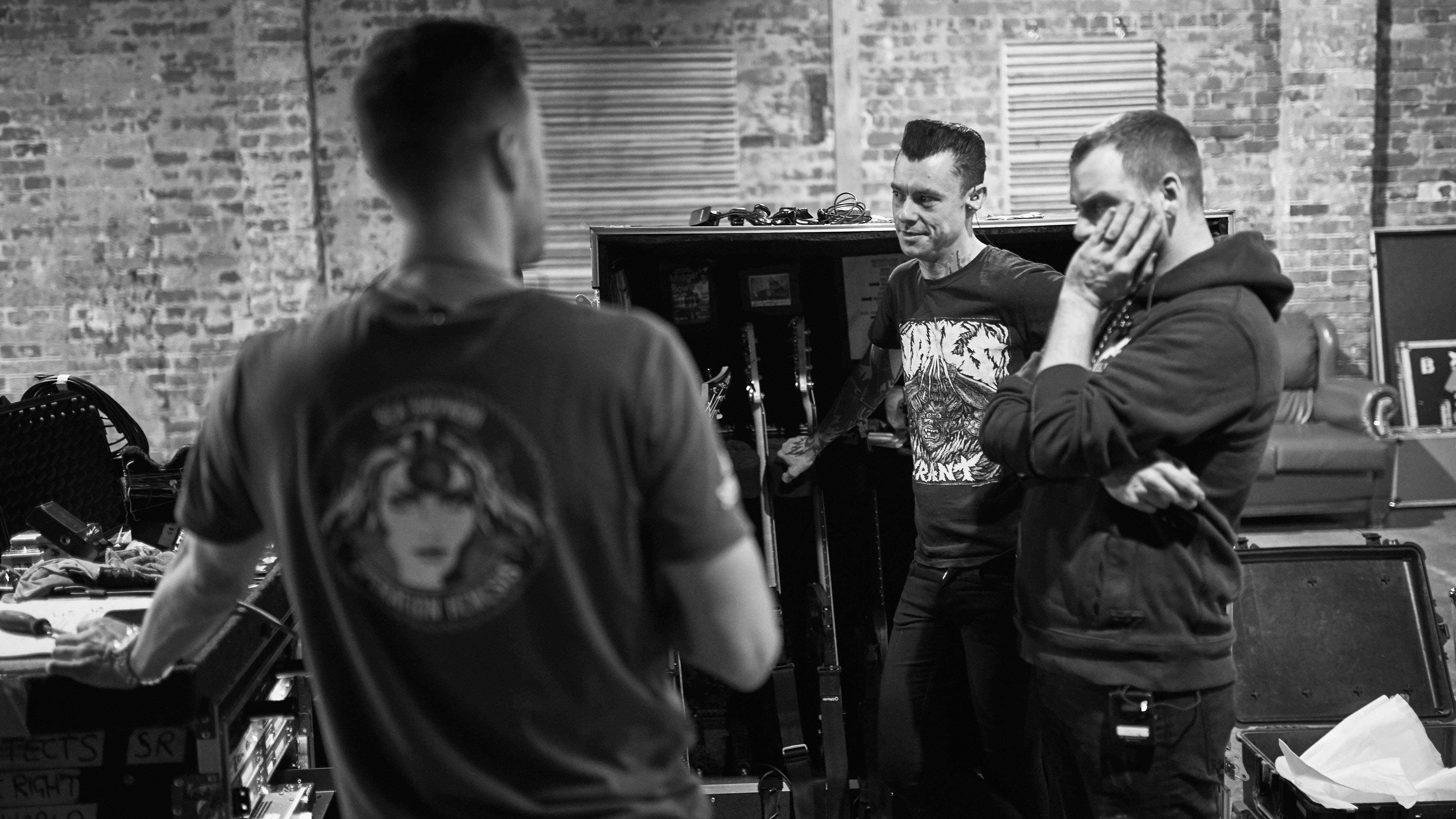
Here's how an average day can be for Martyn when he's working as Josh Middleton's guitar tech in Architects:
10:00: Backline load in
10:30: Set up equipment ( build guitar area, patch in racks )
11:00: Set up stage
11:30 - 14:30: Go through all guitars (re -string mains and back ups if needed. Check all for function, electronics and setup)
14:30: line check stage for front of house
15:00 - 16:30: Band soundcheck
Break
17:30/18:00: Go through guitars the were re- strung ( stretch strings in more/ check setup)
1hr before change over with support band: Check all guitars, stretch in strings, change battery’s, check wireless frequencies etc.
Show Time
What are the biggest challenges of the job? When things go south on stage during a show?
"I can't answer in terms of a single challenge but it's being mentally prepared for when something do go horribly wrong. The things that took a long time for me to get over were mistakes and accidents – freak ghost in the machine occurrences. Things do happen, even if you've prepared and they're not your fault. But you definitely take a hit to your ego when stuff goes wrong. An amp goes down or guitar just stops working.
"I've had some horrendous gigs. But that's part of learning on the job. With all the bands I've worked for I've been very blessed. It goes back to the when you're working jobs between tours for other people. As long as you're working hard and you're nice and you communicate, they're never problems. You just have to show that you learn from what that happened or mistakes and you make that next show even better and you can keep continuing.
"There's that saying; you're only as good as your last gig. And and that's true, but the biggest challenge for me was mentally not taking it so personally. Things go wrong and your job is to get that gig back on the go – get the train back on the tracks. People have paid money to see that gig and as long as you can get through the gig and everyone's happy, most people don't notice the stuff that goes wrong."
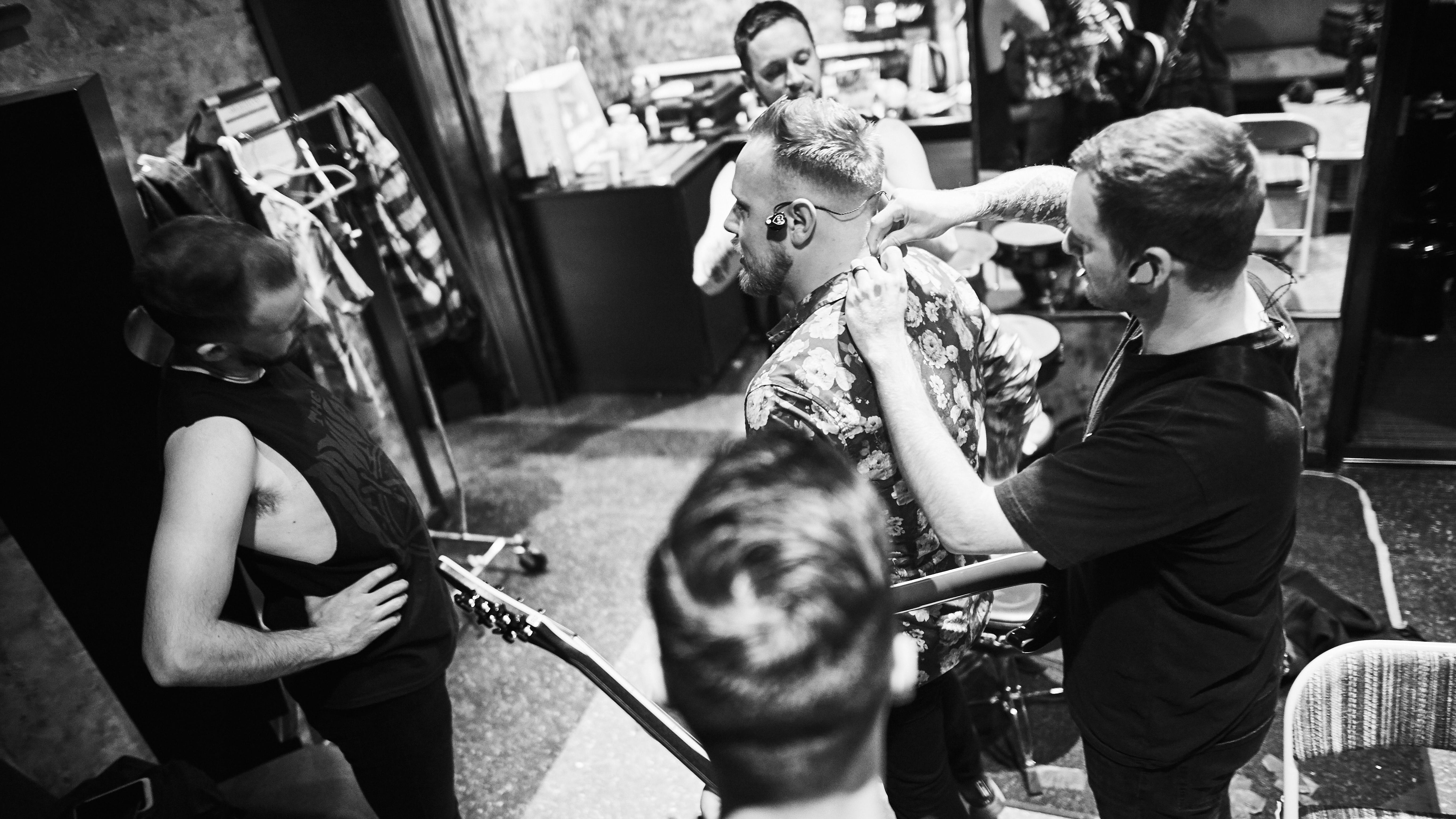

Sylosis and Architects guitarist Josh Middleton: my top 9 tips for players
Applying lessons learned to someone who is playing bars and pubs, what do you think are the most obvious mistakes players make, or precautions they don't take? Not having a spare guitar ready must be a big one…
"Yeah, that's the big one. When I was really young, I made the stupid mistake of having not having a spare for a Floyd Rose guitar. And I hadn't re-strung it for a long, long time. And I snapped a string in the third song during my band's set. My band continued playing while I basically went to the bar and restrung my guitar.
"It's hard because budget is obviously a thing. You know, gear is not cheap, especially decent gear, and I would say definitely invest in decent gear. Look after it, and try and have a spare of as much as you possibly can. Guitar, power supply for amp and pedals. Spare cables and some form of backup power unit or lead are important."
When it comes to touring, and I'm all about consistency, with the Kemper, the Axe-Fx, the Quad Cortex, the Line 6 Helix, you'd have to really, really fight to justify why you think you shouldn't take it on tour
The use of modelling in pro guitar rigs is now common. What impact have the changes to rigs in the last 15 years had on your work as a touring tech?
"It makes my job way easier. I love it! I The best example I have is when I when I first started with the Architects lads, we spent a week to 10 days in a rehearsal room and the guys were all still on amps. Between me, Adam [Christianson, guitar] and Ali [Dean], the bass player, we built three brand new amp rack rigs. We had Mesa/Boogies, Ampeg SVTs, Tom [Searle, late Architects co-founder, guitarist and songwriter] had Diezel Herberts and things like that. And they were great. It worked so well. We had dual switching so we had main amps with backups and we could switch at the flick of a button.
"We were running two cabs a side – 8x10s. It was loud and sounded great. But constantly our sound guy Johnny would tell us it's just inconsistent. We'd run an SM57 on the cab and maybe like a Mesa CabClone or [Hughes & Kettner] Red Box for a DI and every single venue is different in its acoustics. The temperature of the room makes a difference to a valve amp. Don't get me wrong, I love valve amps; you wouldn't have anything else after it without those things. But when it comes to touring, and I'm all about consistency, with the Kemper, the Axe-Fx, the Quad Cortex, the Line 6 Helix, you'd have to really, really fight to justify why you think you shouldn't take it on tour.
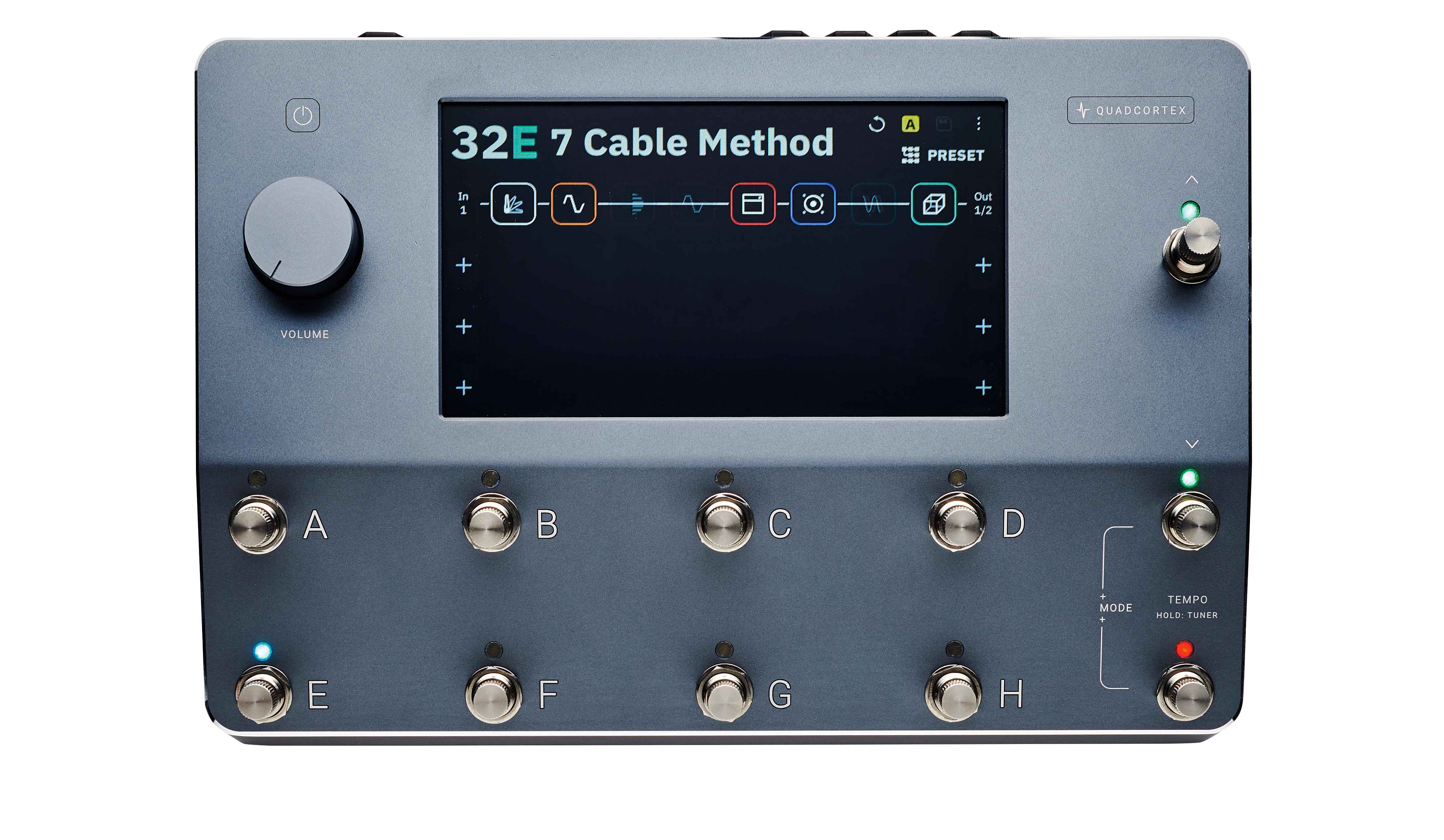
Best amp modellers 2022: 10 hi-tech solutions for guitarists covering all budgets and styles
"Unless you're a band like Slipknot. They all have amp rigs and that's what they want to run. They have the financial means to get those around the world or have A,B and C rigs in different locations so they don't have to freight them. And they have fantastic touring crew and techs to maintain those. But you flip the coin on the other side and go to the pub gigs, it's just not as consistent, unless you're willing to look after that equipment yourself really well. As I say, you can look after it as well as you can, but things can still go wrong. And I'm not saying I haven't had things go wrong with Fractals and Kempers and stuff, but it's far less.
"Usually, it's literally roll in and turn on and it's the exact same sound you had the day before. But it depends what you're looking for. I would never tell Joe Bonamassa to get one. I'm sure he's tried one and I'm sure he thinks it's very cool but it's depends on your vibe. But for my line of work, most of the time it's rock and metal and heavy music, so keep the amps at home, keep them in the studio. Get yourself something like a Kemper.
"A great example is Architects flew to Australia years ago and this was in the transition between amplifiers and Kempers. Gear is so expensive to rent, especially in Australia. And Adam used to play Mesa/Boogie and off of our invoice, just by taking a Kemper and taking off a Mesa/Boogie, we saved a lot of money in 10 days of rental. That's an example of where you can just stick a Kemper in the luggage on a plane. I've seen people carry them on. And it's the same thing. It's just consistent.
"We did a tour in Australia, and then we flew to Europe and our gear went to one festival, I think it was in Sweden, and we had a festival in Germany the day before. And to get the gear, the amount of gear that Architects now use, it just wasn't feasible. And we were looking along the lines of Slipknot with A/B/C rigs but that really wasn't feasible at the time. So in the end I just rented three Kempers from a backline company in Germany. I turned up with USB sticks and remote foot switches in my bag, took an hour before the show just made sure everything's loaded on. There's no argument that would win me over [about amps].

All of Josh's tones are the newest album's tones and they were just given to me in a USB file and I pre-loaded them on the Kemper
You must have heard firsthand how much these things have improved in the last five in that bands can effectively take their studio tone onto the stage.
"I can only speak for Josh on this. Just because he's obviously who I look after all the time but all of Josh's tones are the newest album's tones and they were just given to me in a USB file and I pre-loaded them on the Kemper. But everything is the same. They're not stock profiles, they're custom ones that Josh has made himself and I think the latest one is a 5150 block letter, old EVH, as the profile.
"So it's a case of if Josh is happy, he puts on a USB key, gives it to me and sends it to Johnny at front of house out of the left and right DI. Johnny maybe does some EQ-ing slightly to tailor to the venue but what you hear out the PA is the same guitar tone Josh has used [on the record].
"I think Adam is the same. I don't think Adams changed his tone in a long time. It's a it's a Mesa tone. They just do them at home – they're nerds like me. Luckily everyone in Architects is really into guitar so they sit and they tinker."
That just wasn't possible before
"All these guys sell the Kemper packs – Andy Sneap has done one I think. I worked a lot with carcass over the years and I was out on a festival with Architects and Testament were playing before us. And I looked on [Alex] Skolnick's Kemper and its said 'Carcass Sneap tone] or something. And I texted [Carcass guitarist] Bill Steer and I was like, 'I think Skolnick has your tone from Surgical Steel.' It's like trading cards."
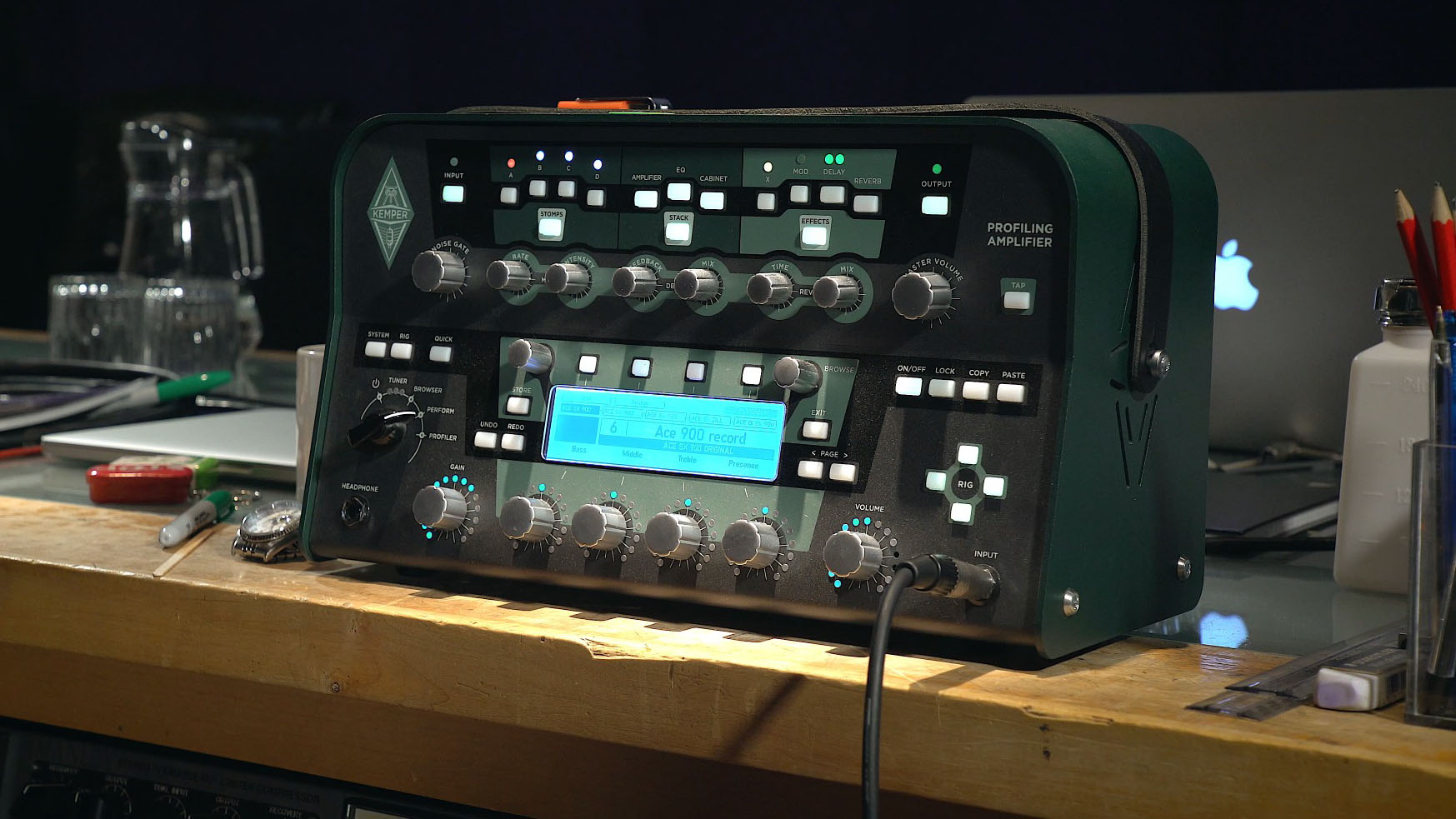
Can you pick out a favourite memory of your kind of touring experiences so far?
"Most of it tailors to Architects. I've had a lot like a lot of cool stuff with with other bands. I think with Architects, when I when I started working with them they would Bristol Academy and now they do Alexandra Palace. And I had the conversation with Ali, the bass player when I first started working for him. I really loved the gig. I loved the people and I'd like to be here in X amount of time and just be part the gang. Stick with them, and luckily, that's worked out.
"I guess the best has to be headlining Hellfest was 2019. Technically it was headlining at one in the morning after Kiss. And honestly, Hellfest is a hard festival, and we we weren't sure how it was gonna go down. That slot is massive, but is anyone going to be there at one in the morning? And they really were and we did the full, big Architects show. We had pyrotechnics and lights and this wraparound video wall. And it just looked insane.
"I think that's one of my favourite gig moments. Watching my friends absolutely smash it. Thinking, wow they're really big band now, and I used to play pubs with them.
It definitely brings tears to my eyes that my friends are really successful. A legitimately big band.
"That's why my relationship with Josh is so good. I've known Josh since I was 19 when he was in Sylosis, and he still is, but the I met him when they played a gig in Bath. I just thought, that guy is so insane on guitar, I want to talk to him, and we became friends. Then years later, I'm his tech. And our relationship is fantastic. I'm often very proud of them.
"When they got the number one album this year, it was solidifying like all that stuff of, I'm not in that band but I'm a part of the band and helped it grow and they're very appreciative of that. It definitely brings tears to my eyes that my friends are really successful. A legitimately big band.
"Another great memory, and it's Architects again, is everyone in the Architects crew and band, apart from Scott Patterson our merch guy, is a massive fan of Tool. It's just this thing everyone bonded over when we all started working together. And finally it all came full circle when the boys were main support to Tool at Download Madrid in Spain. And Tool gave us all stage passes. And as soon as Tool kicked in… I don't know if you've ever watched a gig side stage but it sucks. Everyone says they want to be side stage but it's the worst place to be.
"As soon as they kicked into Ænima it was like, ok, we've got get down the front. But because we had the passes we ended up at front of house, right down like the central reservation for the festival where they split it with so no one's in your way. It was a really hot, humid night and when it's like that PAs sound amazing just because of the density of of the air and the music pushes through it. It was just flawless; everyone there watching this incredible show that we've waited years for. That was my happiest touring memory."
I was making no money. It was like all my income had just stopped. And it was like, well, I have this skill, any chance I can apply it?
You began working as the guitar repair tech for the GuitarBitz shop in Bath during the pandemic and now you're based upstairs with Flat 5 Guitar Setup & Repair Services. Did that happen during the pandemic when you couldn't work on tours?
"Benny and Sam in the shop downstairs are all from around my area. Before the pandemic, I was touring a bit and coming in here to get strings and stuff like that. I'd chat to the guys and one day Benny asked if I could help out with a couple of things.
"I'd do it from my flat with my wife would ask me why there's guitars all around the flat that don't belong to me. I think she was worried they did belong to me! Then the pandemic hit and me and Benny were hanging out a lot because he was down the road, we were writing music and just playing guitar. He's an insane guitar player. It just came up over conversation. I was making no money. It was like all my income had just stopped. And it was like, well, I have this skill, any chance I can apply it? So the guys helped out and it just became more consistent. And better. We started talking about the possibility of using one of the rooms above the shop as a workshop.
"I became friends with Sam, the owner and he was just the best, but obviously, he had to get to know me and trust me. Eventually we gave it a go and I can't thank them enough for it really, because it really did help in the pandemic. It was scary because what if they go through all this effort to give me this room, we make it up into a workshop and no one actually comes and brings the work. Luckily, it has worked out so far.
"I have to say without COVID I don't think that would have happened. It's an idea I've always had but I don't make loads of money and financial overheads are massive, especially in the city of Bath. I've had several friends throughout the world that also do a similar thing. They've got little shops, or they work for vintage repair shops. And it's really hard. The overheads are massive for tools, for electricity, the bills, the rent. So the logical idea was, okay, maybe if I could work with a guitar shop I could make it work, and it has. It's really cool."
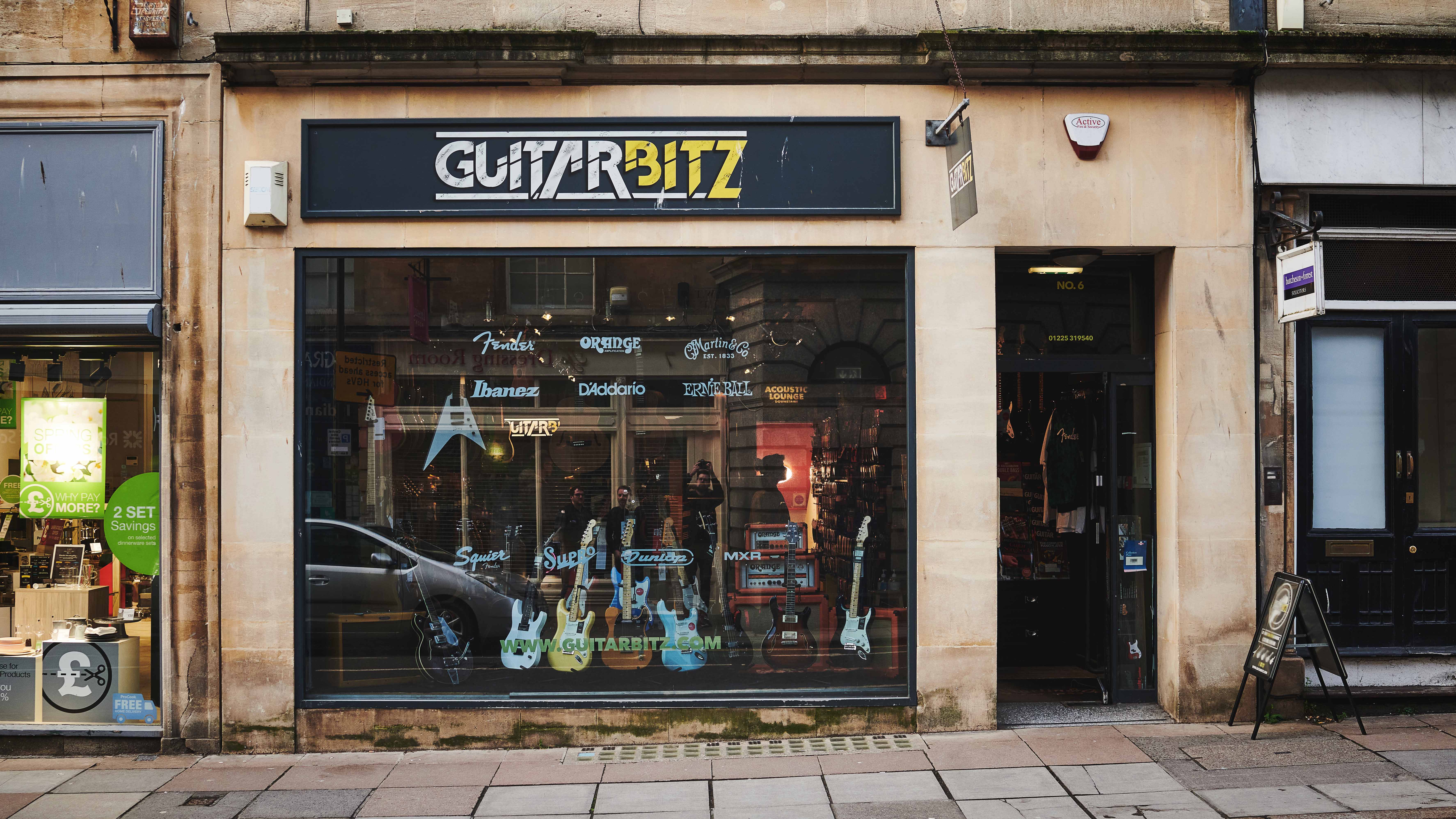
People do need their guitars looking after. It's like buying a car – you've got to look after it
Have you and the guys from the shop noticed the growth in new players coming out of the lockdown?
"Sam noticed that. GuitarBitz have the shop that we're in now and then they have the the website. And so they do a lot of online trade, as you have to these days, and I remember when Sam and I first met everyone was panicking about what was going to happen in retail during the lockdown. And it actually went really well, not just for us but a lot of guitar shops.
"Everyone had that same idea; 'I've got this thing in my cupboard that I used to play'. And then it helped me out because people would come in and say, 'I haven't touched this thing in 15 years and it's battered, but do you think you could make it play again and make it make it work as I thought about getting back into it.' And it's not just guitar. I think people got into drums, piano, all types of instruments.
"So for musicians, it's a good thing because, and I don't believe it, but I used to read articles saying things like, 'the guitar is dead' and stuff like that. I've never felt that personally. I've seen guitar grow… it definitely gives me confidence. People do need their guitars looking after. It's like buying a car – you've got to look after it. So it's helped me."
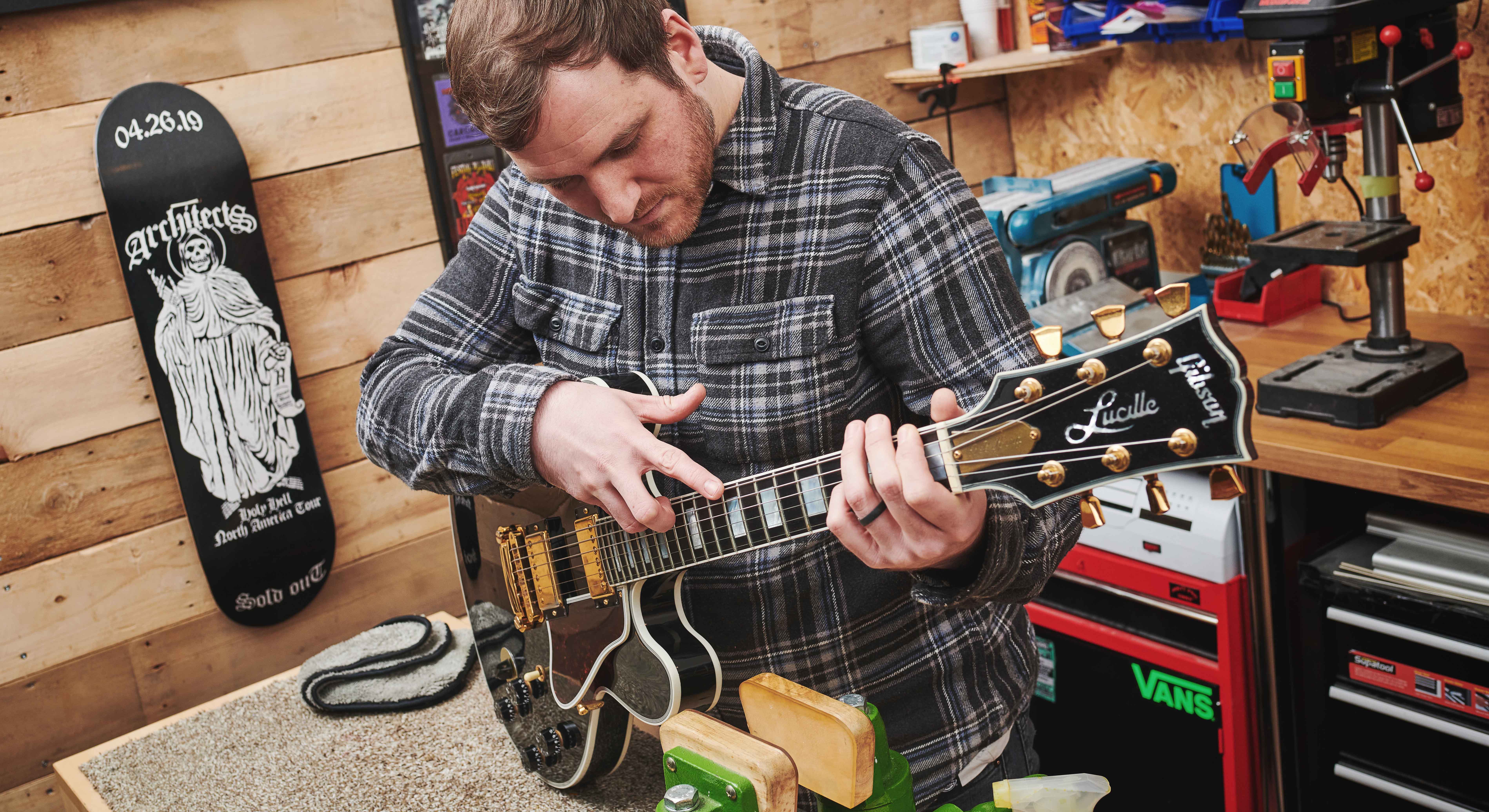
I always lead with, 'Well what does the guitar mean to you?' Because now, if you're going to spend £150 fixing a guitar and don't really care about it, I'm not gonna rip anyone off
It's good to see guitar shops doing well and obviously there's a lot of people buying guitars on the internet without trying them out first too. Prices can be extremely competitive.
"When I was like 10 or 11 you could not get guitars for £99. Or maybe you could but they were from Argos or something and they were not good. I always told people for years that I personally think the Yamaha Pacifica is the best starter electric guitar in the world just for the cost and you can mod it. I had several when I was younger, and I would put EMGs it, route it out, destroy it! I still love that guitar but now meeting the guys in the shop and learning about the retail side of it, they would show me stuff like Cort's line of beginner guitars. Don't get me wrong, they're not Paul Reed Smith's, you know, like, but for the money and what you get, it's insane.
"I get a lot of like, 'How much would it be to repair X, Y and Z on a guitar?' And it's really hard to guess exactly anyway, because some things take longer than others. However, I always lead with, 'Well what does the guitar mean to you?' Because now, if you're going to spend £150 fixing a guitar and don't really care about it, I'm not gonna rip anyone off. You can get like a £99 acoustic guitar downstairs and it's fantastic from Tanglewood. If you're learning guitar or want to start, you can't get much better than that."
A lot of guitar players give up because they think it's really hard to play guitar. It's not easy to play guitar, but you can make it easier by having the guitar more comfortable to play
When you're first learning it's often hard to know if your guitar has an issue with it, and that it might be a lot easier to play with some adjustments. Would you say that when someone gets a new guitar it's worth paying for a set up from someone like yourself?
"Yes, and John Mayer actually clarified this for me the other day when he did his PRS Silver Sky SE video because I've said it for years, even on the opening statement on my Instagram for the shop I said it. A lot of guitar players give up because they think it's really hard to play guitar. It's not easy to play guitar, but you can make it easier by having the guitar more comfortable to play.
"The reason I got into tinkering with my guitar was because I used to get cramp and the strings were really high. And as much as I knew this was meant to be hard and a hard instrument to learn, I couldn't believe it was meant to be that hard, you know? And then that's what kind of sent me down that line of like, oh, the strings seem really high compared to the picture of that guitar, why is that? Oh the bridge needs raising or the neck's bowed or the nut is too high.
"Most guitars off the line have been set up but they've either been set up quickly and the higher you go in a spec of guitar, usually more time that's been spent and it's probably going to turn up way, way better. On a cheaper guitar that's where costs are cut – it's a manufacturing line at the end of the day. And I would definitely recommend taking a guitar to a shop [for a setup].
"But also the big thing is, like you say people buy guitars online, and they go from a warehouse and they've gone from a builder in another country, then perhaps to another country to be stocked in a warehouse, to then put in a shop. And the shop is where I'm sure they have in-house techs where they give general setups to their guitars, get them playing nice and put them on the walls. But then they sit on the walls for X amount of time. If it's not a shop they sit in stock storage, then go to DHL or DPD and who knows where they get stored overnight. Then they arrive at your house one or two days later, it could be in a freezing cold winter or a really hot summer. You get the guitar out of the box and the chances of it playing exactly in tune and amazingly are 50/50 really, probably less that that.
"Variable conditions change everything. If the shop is quiet here, Ben, Luke and Sam downstairs pull a guitar off the wall. If it doesn't feel right, they bring it upstairs and they tweak it and they put it back. But you can't do that to every guitar, otherwise you spend all day tweaking them.
"That's why I brought up the John Mayer thing, because I was watching it when it came out. And he did his own advert for and he says exactly the same thing. I couldn't believe it! He says, a lot of people give up on guitar, but it's more often than not because it's harder than it should be for them. And a setup is everything to a guitar. A guitar should be comfortable and fun to play. You shouldn't want to not play it."
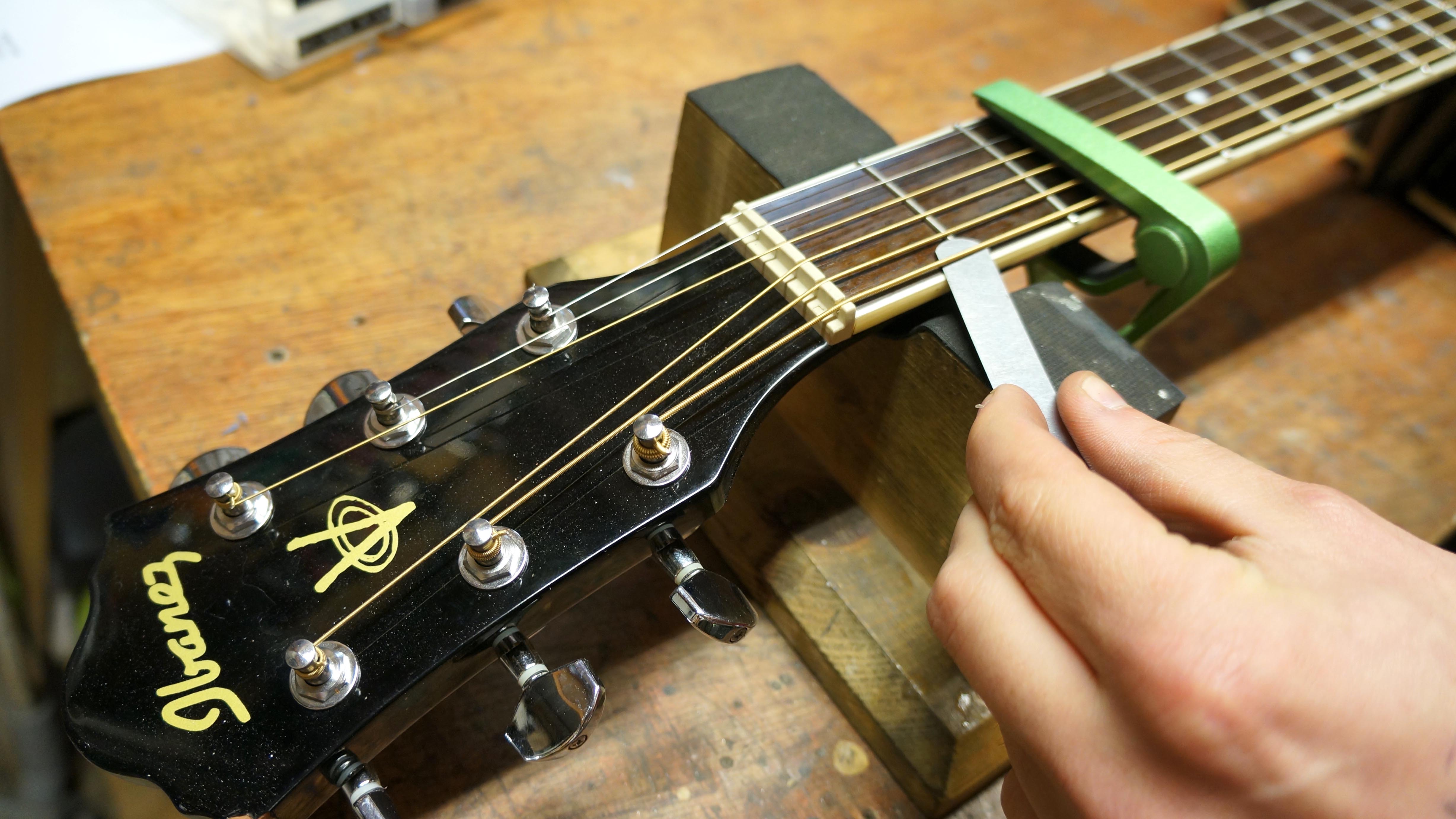
What are the main culprits for uncomfortable guitars in your experience – badly cut nuts?
Temperature is massive – humidity. Nuts are a big one for in terms of keeping the guitar in tune and setting string height. Some manufacturers, not all of them, might keep their nuts slightly high on purpose because they don't want it to wear down in that whole time before someone has purchased it. And you'll have this open string buzz. That's when you should replace the nut but there's a couple of things you can do, such as applying bone dust [in the nut slot]. But I wouldn't say that's a permanent fix."
Does it surprise you that more brands don't offer real bone nuts on guitars if i the superior material?
"It depends what you like. I buy blanks [bone pieces] and I make them from scratch because every guitar is different. They've got different widths and different heights. I do them from scratch because I know I've done them right and I like how they come out. However, that takes time. I can make a bone nut in a couple of hours that I'm happy with if I've got my belt sander. I learned to make them without a belt sander and it would take me six to seven hours hand carving them, and it depends on your tools being good.
"It really depends so I'm not surprised people do tusq because you can get one off the shelf for all different guitars."
But even then it might not be right?
"With tusq nuts I usually don't ever touch the slots, I just lower the base, because they're always too high every time. I think that happens with a lot of people because they don't realise you still have to adjust the height. Your intonation will be out if your nut height isn't right."
Changing a nut sounds like job worth paying a tech like yourself to do.
"It took me a long time before I was really happy with how nuts would come out. Whether it would be the final finish or the polish, or the actual shape of it. It's another skill and the biggest challenge is getting the [original] nut out. Especially if it's a Fender. There's a way that works every time on a Fender nut, well for me anyway, where you slice down the middle of it and then collapse in on itself, you can usually get it out pretty cleanly. But it can go wrong for people.
"You can learn to set up guitars yourself. But it's hard to just do it yourself because you only know your preferences. You need to get experience of knowing other people's preferences. But I think with things like making nuts, refrets, fret levels; more finicky and finesse work, take it to someone."
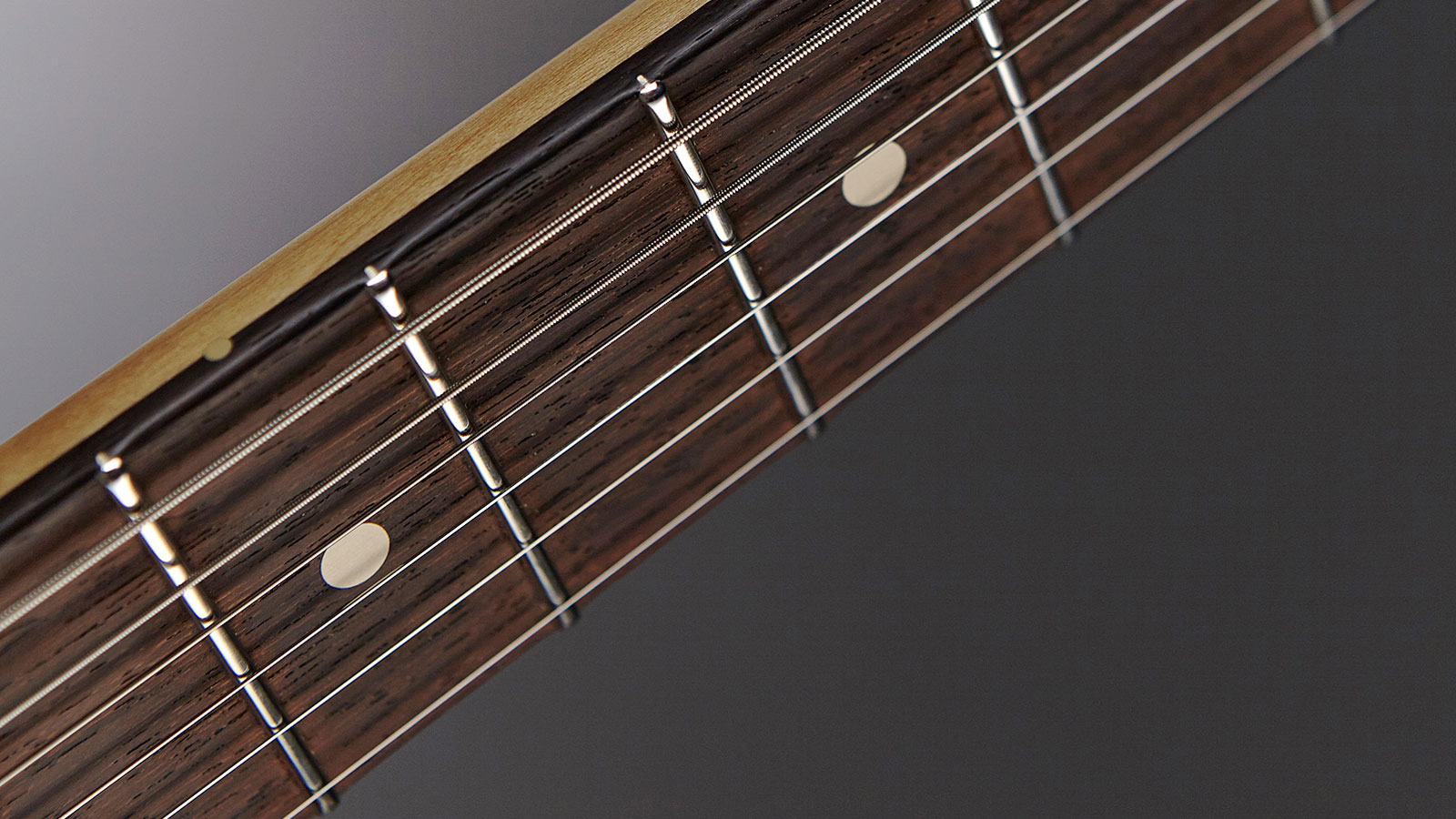
People should not be that afraid of their truss rod
Are uneven frets quite common on guitars?
Yes, and it depends. Again, humidity and temperature from travelling are a massive thing. I think it's quite common when they get shipped and wood does move. Wood contracts with moisture content and if the fret slot is slightly too wide for the tang."
There's a number of factors, including frets not being level, that can cause fretbuzz, how can someone know the cause and know it's not the strings that need changing or if they need to bring it to a tech?
"The strings needing changing is quite common. Try all the basic things you can first; change the string. People should not be that afraid of their truss rod. That's a big thing as well and learning if it's in the right place.
"You need to learn what you're looking for, and with a lot of stuff now I do it by eye. I learned using feeler gauges, the same as making the nuts by hand – I learned from Phil and I also went to Crimson Guitars. They taught me a lot of skills the traditional way."
So you learned from people, rather than YouTube.
"I did a lot of that during my touring days as well but I grew up in that age where to do a skill, you are taught that skill. You can't just bodge it off the internet. it was more that like I had done refrets by myself, and levelling; things like that. And I had some that had come out fantastic. I had some that just came out horrendous. And the problem was, I didn't know why. So you can't actually teach yourself to improve.
"So eventually I had time off of tour years ago. And I was like, I'm going to invest in myself and and I did a few weeks at Crimson because I knew how to do these processes but I wanted to do them with a luthier over my shoulder saying, "I would do it this way, or maybe this is a good idea'. And it just made me feel a lot more comfortable with approaching things myself. It's still a learning curve. There's still stuff that comes up and you're wondering, why is that happening? And it takes forever figure out what something. Especially with fretwork because it's so accurate."
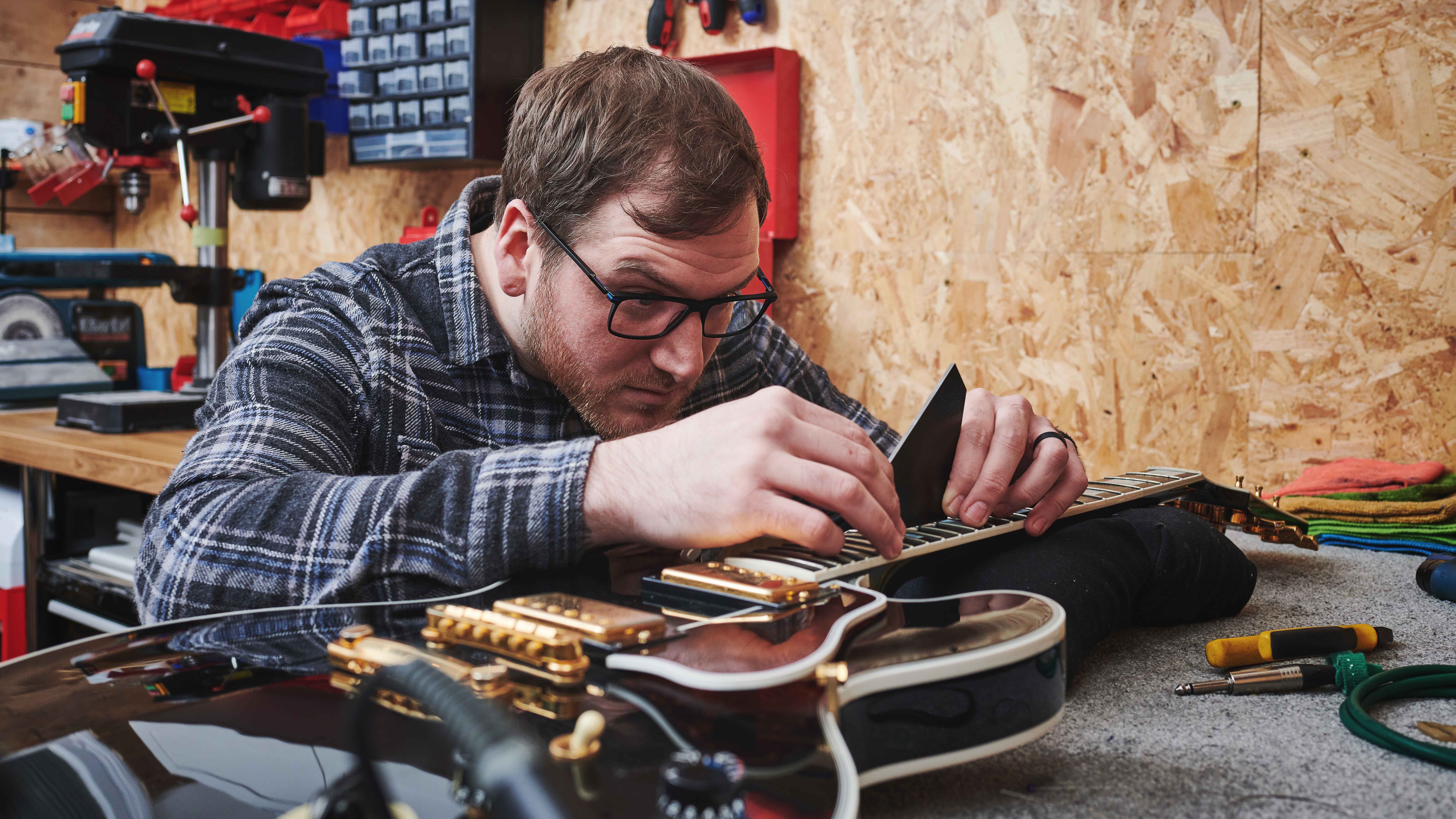
A lot of guitar players get in their own head about fretbuzz
What are the most common things people bring their guitars to you for – general setups?
"Yes, general setups."
And what usually prompts them to do that?
"There's buzz! 'I want low action with no buzzing' is the biggest request.'"
Is that an unrealistic expectation in many cases?
"Yes, absolutely. A lot of guitar players get in their own head about it. Especially if you play unplugged a lot. Because that's the other thing I get all the time. I'll ask them what it sounds like through an amp; does it buzz through the amp? At the end of the day [guitar] is a very old [design] and not much has changed; it's pieces of wood held together and metal rotating in a skipping rope form, hitting metal in pieces of wood. You're never not going to get buzz. You can try and get rid of buzzes. It depends how you pick, string gauge – how hard you play.
"We've had people come into the shop and I play their guitar, Benny plays their guitar – Benny is an insane guitar player and a lot of the time I give everything I do to him [to test] because his technique is flawless – and it's fine. Then the customer comes in and says, 'No there's buzz.' and we'll see them play and it's because how hard they play it. I'm not saying that person is 'bad' at guitar, but I can only do so much to appease.
"It's the same as when I work for a band on tour. I personally like to play the purple Jazz picks at home – which is a really heavy pick. Josh [Middleton] likes to use the green Tortex .88mm so when I look after him, I'm not him but I use the same pick and I try to look at where he mutes. He tunes his guitars by picking upstrokes, so I do too. I don't even know if that is a thing but I'm trying to take out as many variables as possible."
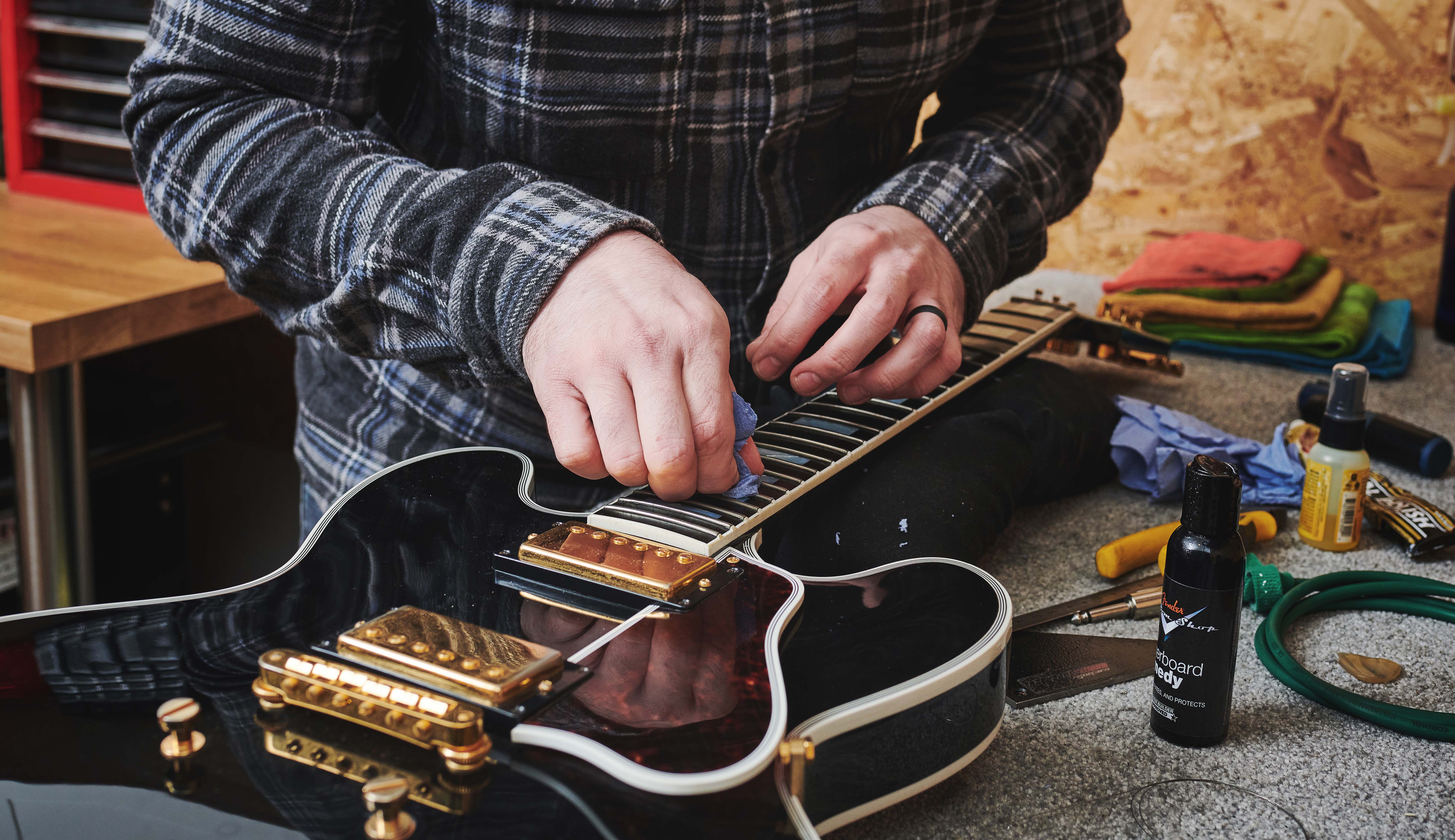
Another massive thing for low action is taking into account the radius of your guitar
There's just so many variables with guitar.
"Absolutely, and no one ever sounds like Stevie Ray Vaughan, even when they put a set of gauge 13 strings on their guitars . My friend Brad is Jim Root's guitar tech and he's got a t-shirt he had made that says 'I want really low action and no buzzing' because it really is the most common request in guitar ever. But it's about what you're looking for; if the note is resonating and doesn't die immediately when you pick it, you can for vibrato and it doesn't choke out and it sounds good through an amp, I don't see what else you want from the guitar.
"That's why acoustic guitars don't have low action. They're harder to play, but they don't have a lot of buzz because the neck is like slightly more bowed in and the action is high. You can bring acoustic action down to a degree, of course. Everyone gets in their head about this stuff. And sometimes I do, because I don't know everything about guitar and I'm trying to continuously learn.
"Another massive thing for low action is taking into account the radius of your guitar. I had one the other day, I think it was a Strat but they come into various radiuses depending on age and reissue. Benny took it in and the information sheet for me said 'action as low as possible.' But it was already low. So I went through it and the frets were really clean, hardly worn and fairly level. Not worth doing work on so I went to get it as low as I could.
"It was 7 1/4" so vintage radius. I don't measure the radius until I take the strings off, condition the fretboard and condition the frets. Then I have different radius templates to check. He was a lovely chap and when he came to pick it up I had to explain to him I've got it as low as I can get it without choking out and buzzing. Visually to him it still seemed kind of high but he's working on a 7 1/4" 'board and it's a really sharp angle.
"The strings should follow the radius of the board. Something like a Tune-O-Matic-style bridge is already radiused, unless it's collapsed. The Tune-O-Matic is one of my favourite style bridges ever but there's so much pressure on the two pegs and a piece of metal with strings at 440 concert pitch. When it's collapsing you'll notice it begins to choke on the D and G string. It won't feel very nice when you're playing a box 1 pentatonic scale and you get to the middle, but the outside strings will be fine.
"If the bridge collapses you'll have to get a new one, and make sure the radius and string spacing is correct. If you buy one with blank saddles, bring it to someone like me and I can space it out correctly in accordance with the nut, unless you can find an exact replacement."
What should people look out for when adjusting the Fender-style bridge saddles?
"Look at the actual saddle – the saddle shouldn't be twisted anywhere, it should be straight to the back of the bridge. And both grub screws should be flat on on the bridge. The way I find the right point when adjusting is I get the height I want, and then I turn so clockwise so going down into the guitar, but not so much that it moves a saddle up, just so it gets to the point where I'm not even putting any like weight on it, but I can't turn it anymore. That means it's gripping. Because that can be another source of a buzzing and rattling."
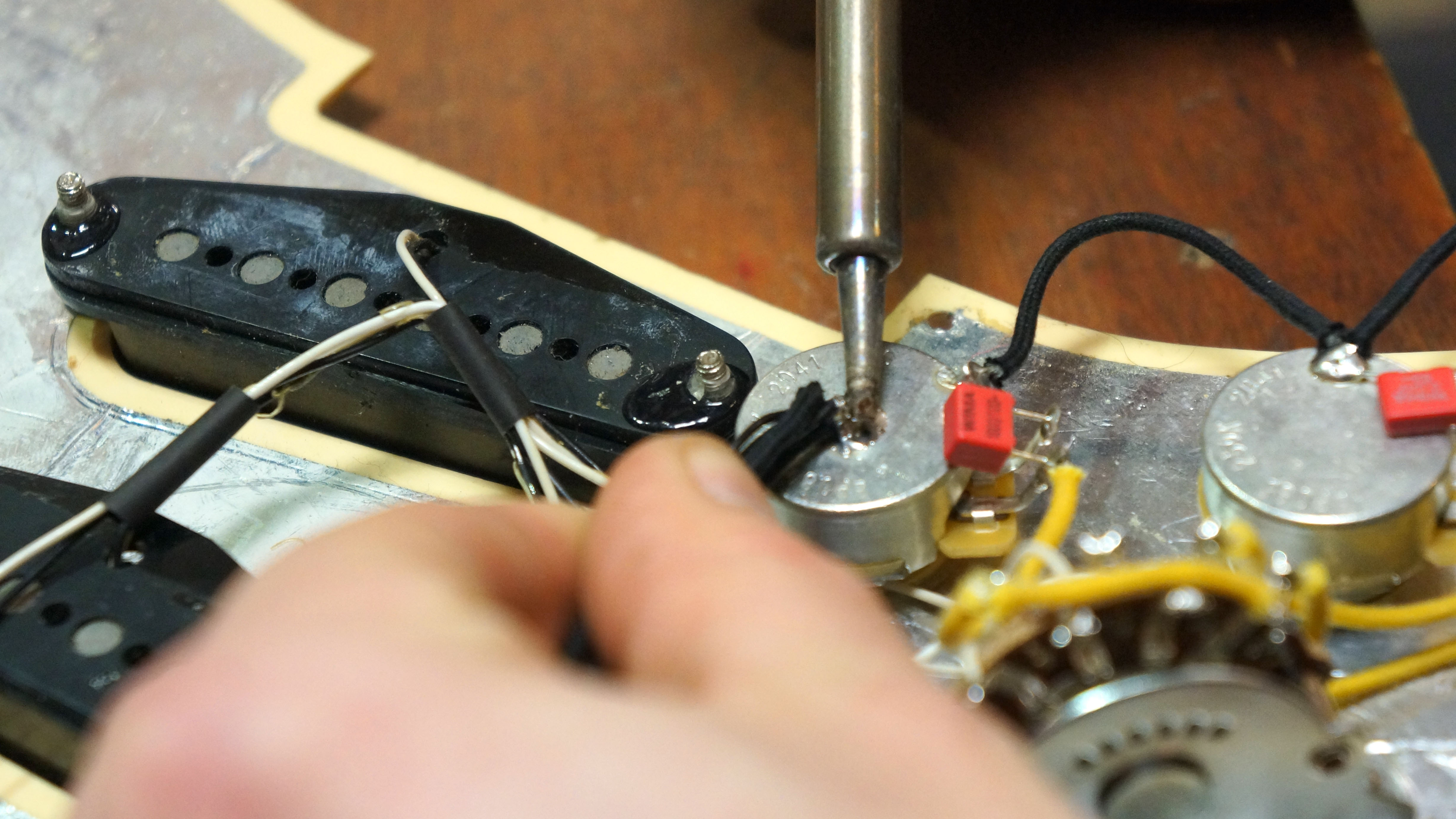
Solder is just a tougher connection and if it's done correctly, it should last a long time
Do you get many requests for soldering work, such as new pickups?
"Yes."
Does it surprise you that guitar circuits and pickups are basically still soldered in the way they were 70 years ago, and are there good reasons for that?
"That's a really good question. I've got to be honest, there's a brand that does solderless connections and I absolutely despise it. I think they look rubbish. I mean, you don't see it but for me that matters. Wiring up a guitar nicely with vintage core wire, or dual core wire, is really satisfying. But I have often found on those [solderless] pickups, there's a slightly loose connection or crosstalk in connections, and I have to spend forever trying to find what that issue is. And it's usually a bit of wire that's got caught up in something.
"Solder is just a tougher connection and if it's done correctly, it should last a long time. Yes, they do dry out, if you've seen soldered joints and they're white and oxidised. They do still sometimes work but I would just heat this older and and then put a new joint on.
"If you're soldering I would advise using a chisel tip; something that's wide and flat. that actually disperses heat for guitar parts. I see a lot of guys using a pencil tip and they've got a pot… that's a long of metal to heat up with that tiny tip.
"The solder should flow really nicely like water too. You must have seen connections where the solder will be built up and that's where the tip has not not been consistent."

Pickups can be a strange area for players because they won't know exactly how they'll sound on their specific guitar until they fit them.
"You don't know what they're going to sound like in each guitar. With something like an active pickup, it's less so because it's more of a voicing. Especially in more modern things like Fishman [Fluence pickups]. Josh has Fishmans in all his guitars; the Moderns mainly and I love those pickups. But I've had them in various guitars and they all sound like Josh. But when it comes to like passive pickups, yes the guitar makes a difference. How cleanly it's soldered makes it difference when it comes to cutting down noise.
"The big common one I get is people saying, I've got this pickup, or this pickup set in my Jazzmaster, for example, can you put this neck pickup it in? I'll ask them, where did you get the neck pickup? On eBay. Is the polarity going to work is actually going to work in this set? The reason you buy pickups in a set is because they've been wound together to complement each other. Unless you're going for the out of phase thing, and then it can sound really cool.
"It's 50/50 really. I put people's pickups in and why doesn't it work sometimes? Oh, it's because actually they magnetise one way. You can change magnets around but I don't tend to get into that because I don't want to open someone's pickup, especially with the copper wire being so thin. But that's a big one. So try and buy in sets, unless you've got a single pickup guitar and then you're laughing."
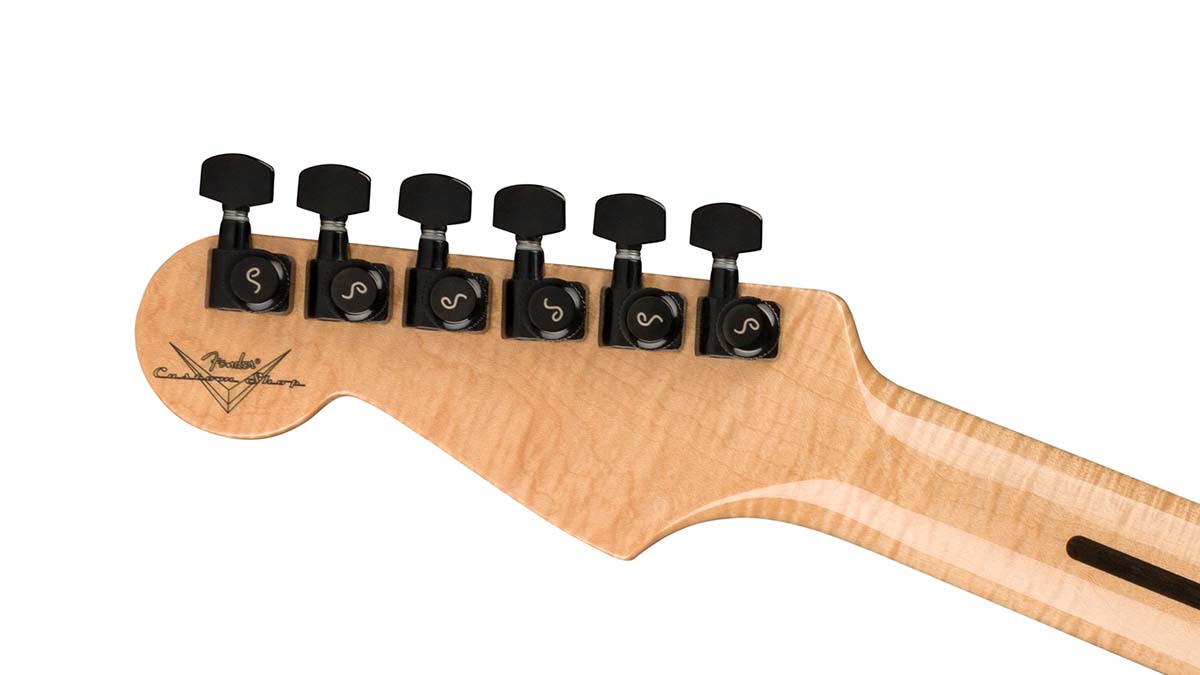
We've talked about the importance of the guitar nut, what other factors on the guitar tend to affect tuning stability?
"The biggest one is I take the strings off and the tuners are loose. That's a big part of it. As well as the nut, the saddle is a big part of that as well. With saddles sometimes you take the string off and you can see the imprint of the string in it. Dan Erlewine is a guitar repair legend and there's a really old video of him talking about it. At a microscopic level you've got to imagine that's like speed bumps on a road. It's a not a smooth surface for that string to sit in. So again, that's a variable that could cause buzzes and tuning stability.
"The point is to take away all these factors. A lot of it is a process of elimination. With gigs onstage, I don't do a lot of setups on tour. A lot of that stuff is done a week prior to a tour. I got through every guitar and I do the full once-over on everything so that it's ready for the road. And then on the road it's maintaining it."
Are you changing each guitar's strings every gig?
"It depends on the player. With some guys yes. With Devin I change his main guitars every gig, not the backups. The backups every two or three gigs. I take into account if the player sweats.
"It depends what kind of sound you like as well. Steve [Micciche], the bass player in Every Time I Die, loves brand new bass strings every single day."
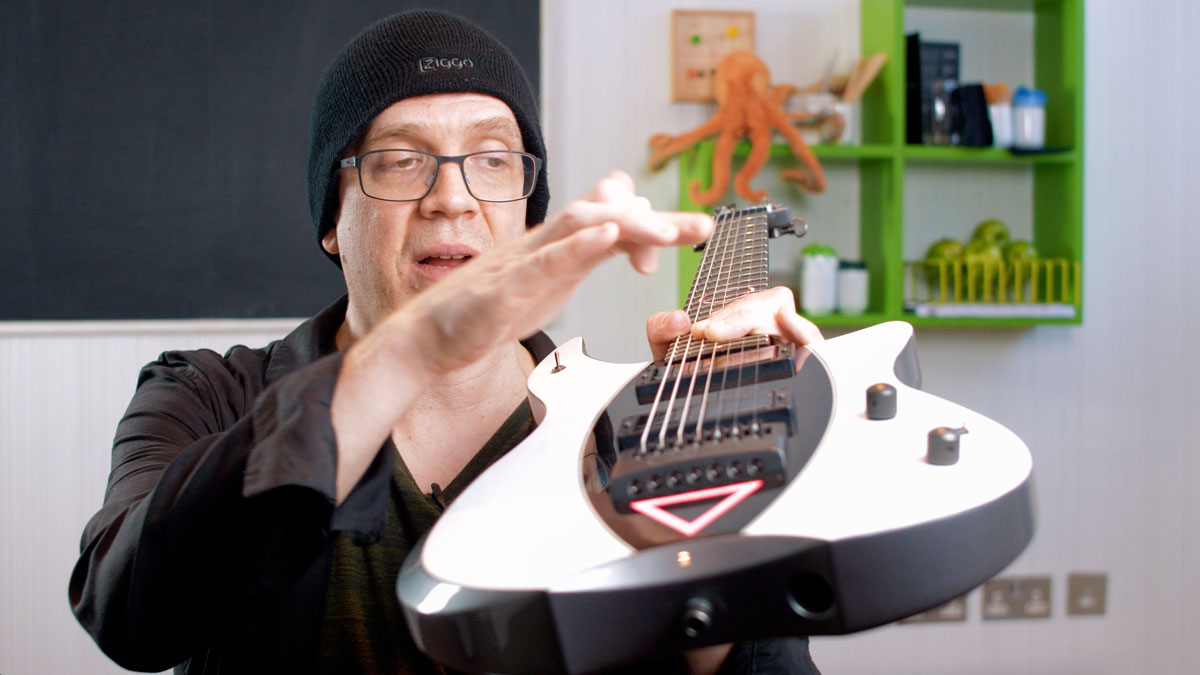
There's a reason why most people copy the Les Paul, Strat and Tele
Is there anything you would change about guitar design if you could?
"Not and that's why I'm not a luthier. That's a question I've been asked before; why don't you build your own guitars? I don't see what I would do. The things are perfect for what they are – well they're not perfect but they have characteristics. Josh has three of the same signature ESPs and they're all different slightly in the way they feel. They're very close sounding but they sound ever so slightly different.
"I don't know what I would change. I don't like getting too technical with them either, I like the traditional. Because there's so much tech going on with the amps, I like it when guitars are just guitars. I wasn't a big fan of the robot tuners. It's cool but I don't think it holds the tuning better, it would just make me more lazy with learning to tune by ear. But it was also really ugly.
"There's a reason why most people copy the Les Paul, Strat and Tele isn't there. Because they got it right. Then other manufacturers put their kind of spin on it. I think bass guitar has way more diversity in it than electric guitar has. Like the Dingwall basses – they are their own thing. They're not a Fender Jazz or a Fender P – which are the best two basses in the world in my opinion. Same as an Ernie Ball Stingray."
There's something comforting about electric guitar getting a lot of things right early on.
"Yes, and my favourite pickup in the world is the [Seymour] Duncan JB and so many pickups are modelled off that. They just got it right. Sometimes you do get it right the first time and maybe people can't deal with that.
"Josh says it to me all the time – just listen and trust your ears and what you like. I've watched a lot of guitar players plug into a new amp and they just start turning dials, chugging and turning dials. But what are you looking for? Obviously you've got to find the settings you like but I find a lot of guitar players turn knobs and in their head they're thinking about a tone in their head. It's important to think about what you're trying to achieve."
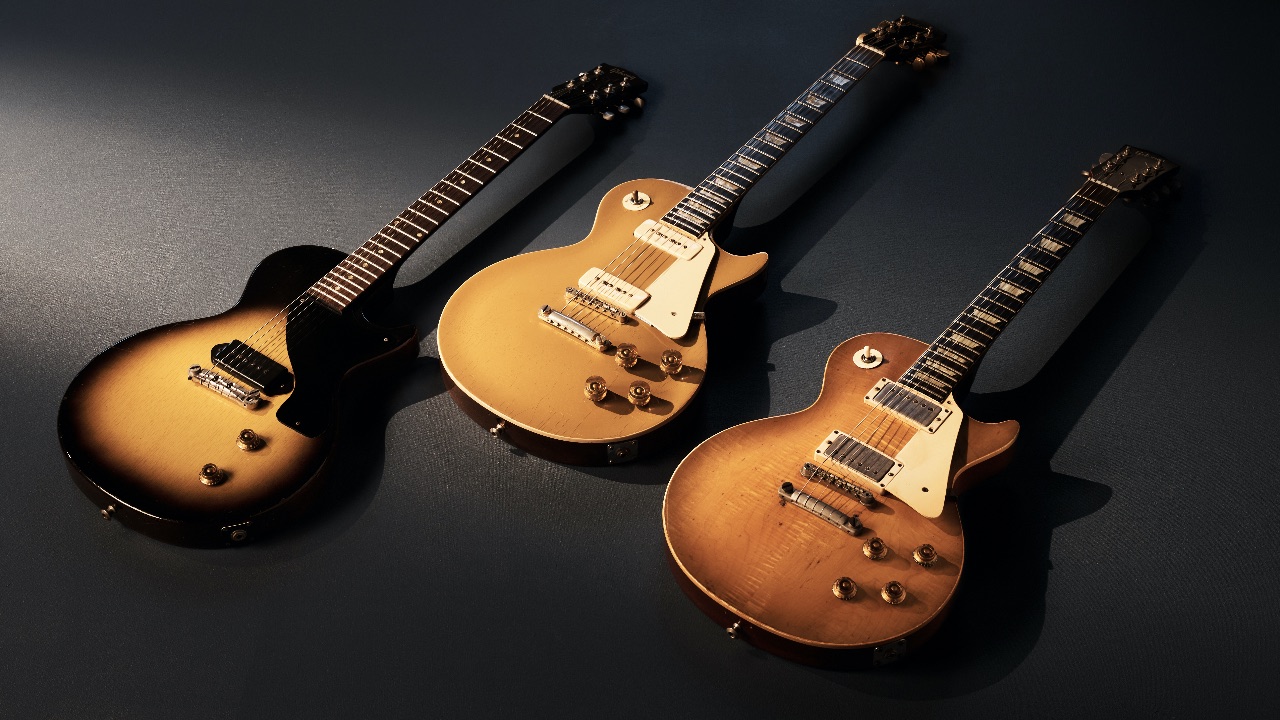
So, someone wants to check over a guitar they are thinking of buying – what advice can you offer?
"Learn how to read the guitar neck and adjust the truss rod. To have the right tool to adjust your truss rod. A lot of guitars come with the tool but if you use the wrong one you can strip your truss rod and then you've got a whole load of other problems.
"Keep your guitar clean. If you get a new guitar check it over. I get a lot of people worried about tiny blemishes but how is it playing? Look for fret sprouting at the ends. How well does it stay in tune when you vibrato – so learn to have a decent vibrato with your playing.
"I bought a 1989 Les Paul Custom years ago and I went round the guy's house with a tool box. I gave it a once over before I bought it because it cost be about £2,500. It had to be right. So the first thing I did was check the truss rod - does it function? Yes it did. Are the saddles worn down? Is the nut worn down? Those things aren't a huge issue for me personally as I can change them myself but if you're buying a brand new guitar you really shouldn't have those issues. Every now and then they do slip through."
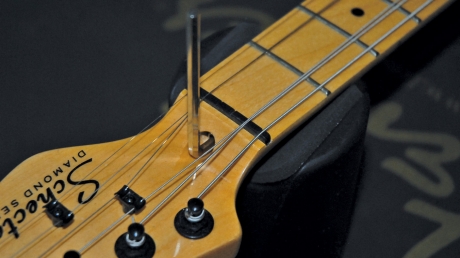
What kind of issues have you seen with truss rods?
"You can get truss rods either at the end of their tension where they've been screwed so much that they don't turn anymore, or what I find is worse, over the pandemic someone may have got their guitar that's been in a cupboard for ten years with no strings on it. If you're lucky the wood hasn't bowed over time but where has the truss rod been left when the strings are off?
"If it's been left loose, and this is with a single action truss rod that only bends one way, there's no tension on that rod but you've left the strings off for a long time and the neck has bowed backwards. Which is what you'd make it do if you were to tighten it. Then if you tighten it all it's going to do is go further and further back. You can't bring it back the other way. So you can replace the truss rod, do steaming – that's something I've seen done where they put a tube down the truss rod cavity and steam it out. Again it goes back to what does that guitar mean to you? Do you want to spend the money fixing that issue or just buy a new guitar.
"A big job I do sometimes is when acoustic bridges lift up. Again, it's weather conditions and if the bridge hasn't been seated properly when it was made and the glue eventually just fails. I've done a few of them where you have to take the bridge off, clean the belly of the guitar and reseat it. As long as the guitar is flat, but they can belly out where the wood swells. Again, that's steaming and I'd send it to a luthier.
"I get so much traffic with the setups, I don't really have space to have a guitar held up in a jig for days on end. So there's a few guys in the area we'll send them to for that kind of work."
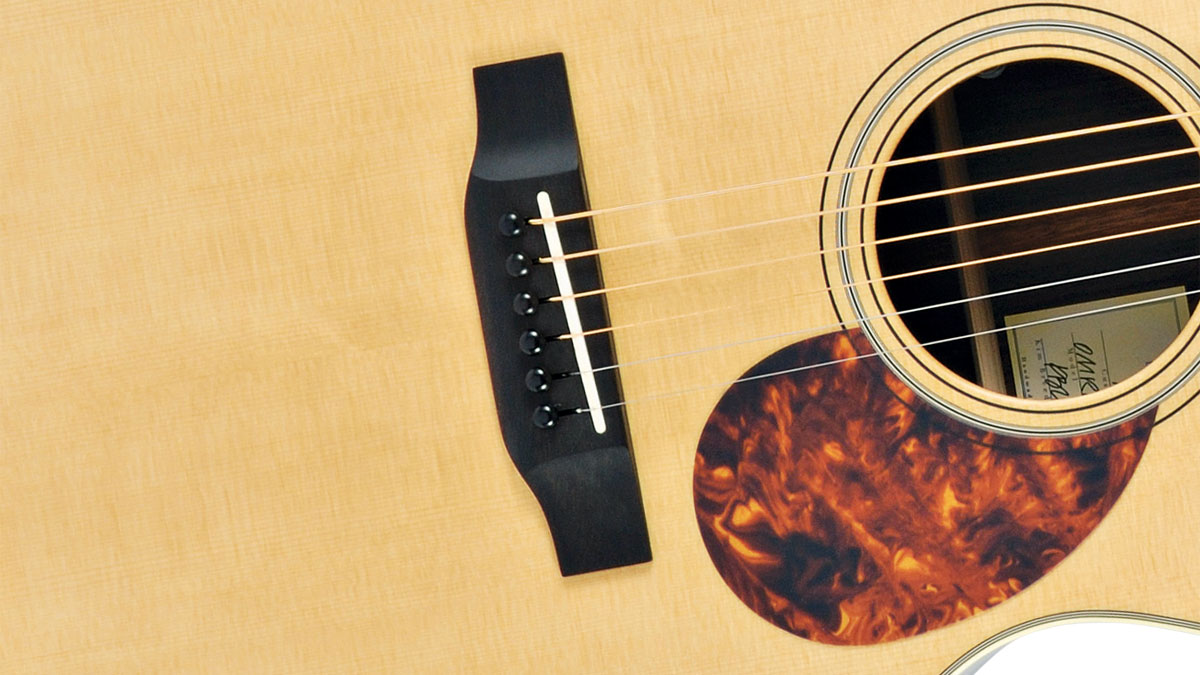
Ask questions, and don't be afraid to ask questions because everyone's got to learn
What would your advice be to someone who wants to properly get into teching?
"Get on eBay and buy a cheap guitar to try things out on – you cannot care about that guitar. Do not do anything on anyone else's guitars until you know what you're doing. Not just from a financial point of view where you might not be insured to do that but people can have emotional connections to guitars and if you mess it up, that's just not right. And it won't do you any good. So don't say you can do something if you don't know how to do it.
"Invest in yourself. I'm not saying you have to go to luthier school for a year or two years but that's a great way to go. I did some classes to build my skills up and learn more. But I learned a lot of this stuff from Phil when I was a kid, whose dad built acoustic guitars. And I was learning on tour, and learning from mistakes.
"If you're trying to get into it, the StewMac YouTube channel is great. That whole company was founded by a group of luthiers in the States that do insanely good work. And they've all got a different skillset and they come together. But ask questions, and don't be afraid to ask questions because everyone's got to learn.
"Decide how you want to get into it, because there's a lot of avenues. There's being a touring guitar tech, working in a music shop or being a luthier if you feel you have something to contribute to the guitar world. That's probably the hardest path to go down and I respect anyone who does it. But you might want to be niche and just work on a certain type of guitar – maybe just do acoustics. You might even want to get into refinishing."
To find out more about Martyn's services at Flat 5 guitar visit

Rob is the Reviews Editor for GuitarWorld.com and MusicRadar guitars, so spends most of his waking hours (and beyond) thinking about and trying the latest gear while making sure our reviews team is giving you thorough and honest tests of it. He's worked for guitar mags and sites as a writer and editor for nearly 20 years but still winces at the thought of restringing anything with a Floyd Rose.
